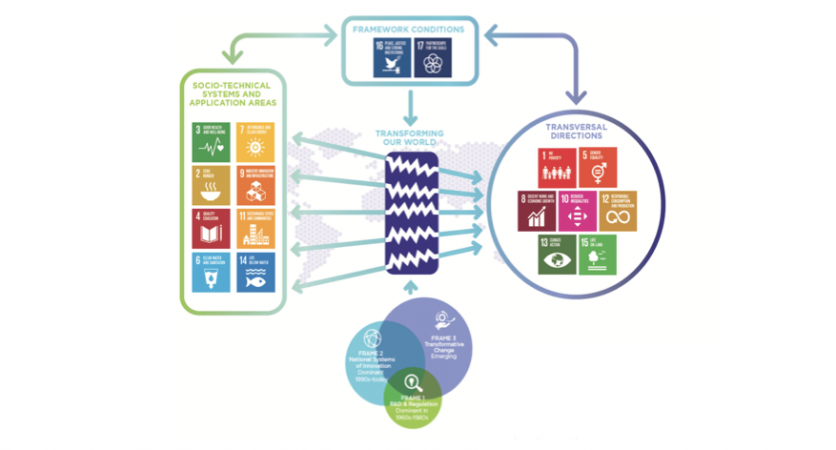February 24, 2022

UC Merced doctoral candidate and MCS affiliate Felber Arroyave and colleagues published in the leading science policy and management journal Research Policy, a member of the prestigious Financial Times 50 list.
Article summary: The 17 Sustainable Development Goals (SDGs) set out in the United Nations 2030 Agenda create a space to stimulate thinking and action about transformative changes in our economy and society. Therefore, they represent a new interlinked transformative way to address societal challenges and invite a deep reflection about the choices and directions for public investments in scientific knowledge production. For example, discussions around the meeting points in Clean Water (SDG 6), Clean Energy (SDG 7) and Zero hunger with its emphasis in sustainable food (SDG 2) emphasize the necessary integration of goals across systems to address social and ecological challenges. This new framing of STI policy moves beyond stimulating economic growth through investment in R&D, but builds on the notion that STI policy should consider how to produce scientific knowledge that can assist transformation.
In this work, Felber and colleages develop a framework (i.e. transformative lens) for assessing whether a research system is producing relevant knowledge for moving societies in a transformational direction. The starting point is that the 17 SDGs can be broken down into three types: first, SDGs which we refer to as “socio-technical systems” that describe areas of provision of basic needs; second, SDGs that express new social and ecological directionalities that need to be incorporated in the process of change; and third, SDG refers to the requirement for wider participation and networking across actors to negotiate and navigate different transformational trajectories of development.
To evaluate how the SDGs are interrelated, we use the Mexican STI system as a model to propose a method based on network analysis and bibliography coupling that identifies cognitive similarities within scientific publications. The importance of cognitive integration is that it can act as the device of action and change. We therefore argue that cognitive integration is a key mechanism and a good indication of transformative directions.
Read more in the full open-access article:
Goyeneche OY, Ramirez M, Schot J, Arroyave F. Mobilizing the transformative power of research for achieving the Sustainable Development Goals. Research Policy. 2022 51(10):104589.



